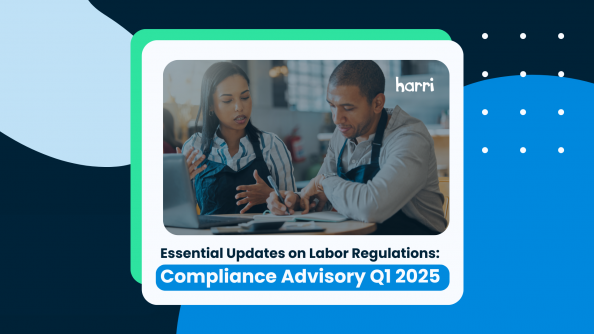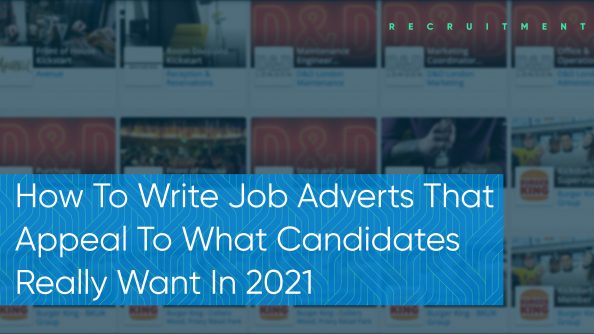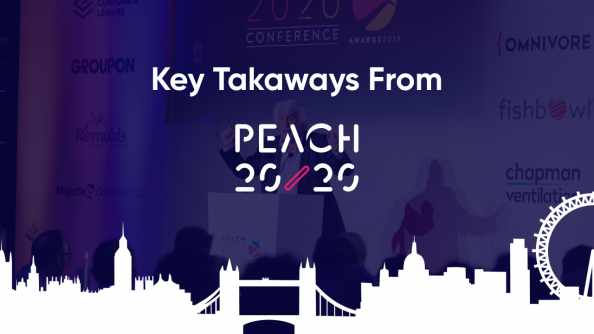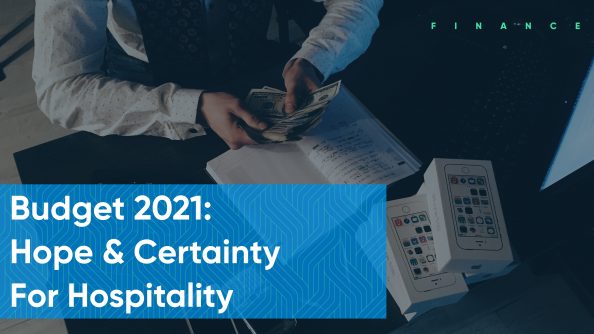Rebuild & Reinspire Hospitality Recruitment Summit | Session 3: Reinspire

- By Harri Insider Team | June 9, 2021
Welcome to the Rebuild and Reinspire Hospitality Recruitment Summit, a virtual event comprising three sessions that directly address the ongoing staffing crisis in the hospitality industry.
In the third session, Olajide Alabi, Implementation Training Specialist from Harri met with Danny Stacy, Evangelist from Indeed; Sam Goode, Global People Partner at Nandos; Natasha Nagra, Head of Talent at Kew Green Hotels; James Brown, Managing Director at Brewdog and Founder of TipJar; Dolores Panetier and Amy Bennion from Only a Pavement Away; and Solène Anglaret, Director of People and Culture at Harri to discuss how important creating a compelling Employer Value Proposition is to both expand and build a strong inspired workforce.
We share some of the highlights from this session:
Challenging Unconscious Bias
Danny Stacy really kicked our conscious minds into gear with his lively and thought-provoking presentation. Using fascinating research, he demonstrated just how “baked-in and unconscious” much of our decision-making is, and how important it was to take steps to eliminate that unconscious bias so we can connect with a wider, more diverse group of talent.
The rest of the panel joined him to discuss their views on what makes a compelling Employer Value Proposition (EVP) and beyond that, how to attract the broadest range of talent moving forward.
Authenticity is key to a compelling EVP
James summed up EVPs, “Needing to combine transparency, honesty, and authenticity; alongside the usual salary and benefits.” He thought talent increasingly wanted to see evidence that their employers stood for something; and even perhaps convey some of the excitement and fun that those embarking on their first job were looking for.
Sam agreed on the importance of authenticity, “If the brand looks great superficially but the reality is different, retention rates will ultimately be affected.”
Natasha thought that the right EVP for your company was one that created a sense of belonging for the right people which in turn would drive higher performance. Solène came back to this idea of feeling at home in your workplace later in the session when talking about how to create an inclusive workplace. She said, “You need to be clear about your culture and values so you can attract the right talent where they can show their whole selves. Customers will then recognise themselves in your staff and culture and they will come back time and time again.”
Your existing people are the starting point for your EVP
The best place to find the right voice for your EVP is from within your own organisation. Sam was clear you start with your employees as they are living and breathing your culture. He said, “If you encourage them to tell their stories in their own words, it can add to the authenticity of the workplace and will also reduce the use of corporate language.”
Natasha agreed it was about asking the people in your business why they get out of bed for you every day. Additionally, she thought that EVP should be aspirational and seek to nudge the organisation in the right direction.
James made the point that EVPs needed to be built not just by HR but also the marketing and communication teams. Danny reinforced this message by reflecting that he thought Coca-Cola European Partners used their learnings from marketing their consumer brand to develop a successful EVP where candidates know exactly what to expect at each stage of the funnel.
A one size fits all approach won’t attract enough talent
Maximising your pool of talent means thinking smarter across the full range of levers at your disposal. The panel had a detailed discussion about what operators can do to attract the broadest range of talent. Sam talked about the need to think about segmenting by communities of talent and what they are looking for in a job. He said, “Many Millennials want brands that support sustainability but also want flexibility and personal growth. Nando’s offer of sabbaticals really resonates with that demographic. But thinking about the right benefit wasn’t a once and done issue – it needs to keep evolving all the time.”
James felt that people had the wrong idea about the industry, and we need to shift people’s mindsets particularly about the longer-term opportunities in the sector. We really need to start selling the idea of a career. We have to paint pathways so today’s 19-year-old can see a clear route to junior manager then manager and beyond.
Natasha agreed; first, companies need to do the work on demonstrating that hospitality was not the industry of last resort. Secondly, she reflected that people’s needs have changed over the last twelve months and they wanted more flexibility in their careers whether that be to spend more time with their kids, or to carry on working on their side hustles. That meant looking more creatively at things like job shares even at management levels.
Dolores and Amy from Only a Pavement Away were keen to celebrate the successes of many of their homeless placements and offered some good advice to companies looking to recruit from vulnerable groups. Be open minded and considerate but treat them the same as other candidates.
Sustainability and Corporate social responsibility (CSR) are really important
The panel recognised there were some key areas where potential employees and customers had really strong expectations. James noted that five years ago, candidates never talked about sustainability and now they mention it all the time.
Sustainability and CSR (Corporate social responsibility) are therefore critical areas for EVP. Danny said, “When young people are asked what they want to do when they grow up, they often say they want to work for a company who does this or invests in that with no specific role in mind.” To his mind, if CSR (Corporate social responsibility) and sustainability are not part of your brand, and you want to recruit younger talent then you are going to have a problem.
Getting out the message about your brand’s commitment to sustainability is important. James reflected on how hard Brew Dog’s journey from being Carbon Neutral to Carbon Negative has been; but it was an important thing to do. He thought the best way to get the sustainability message out there was to wear it on your sleeve and be authentic. If you are just greenwashing and have not invested much money or time in it, then people will see through that.
To find out more about how Harri can support your EVP and recruitment strategy click here.




















